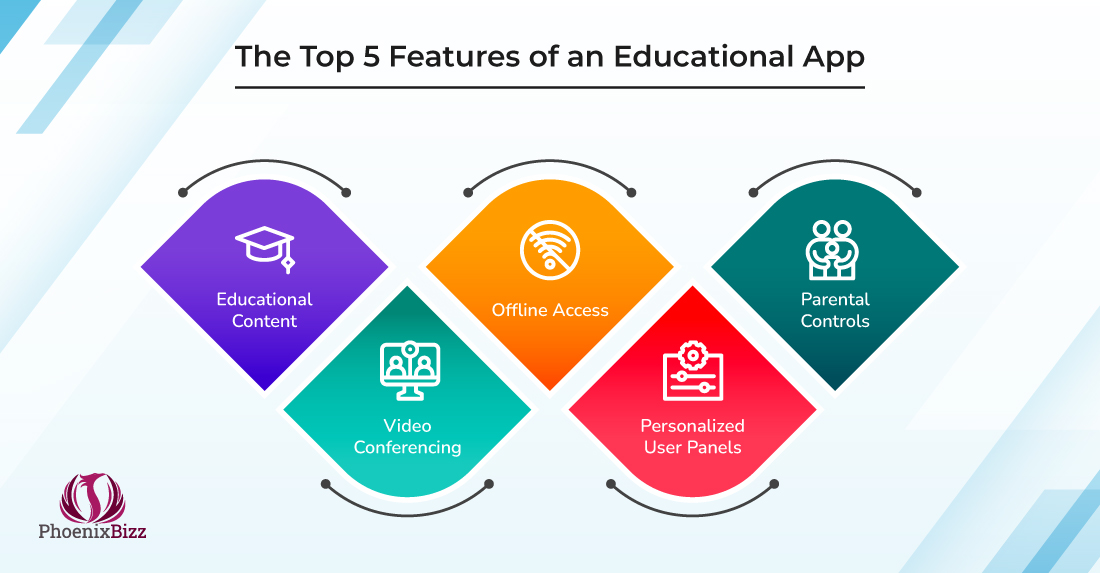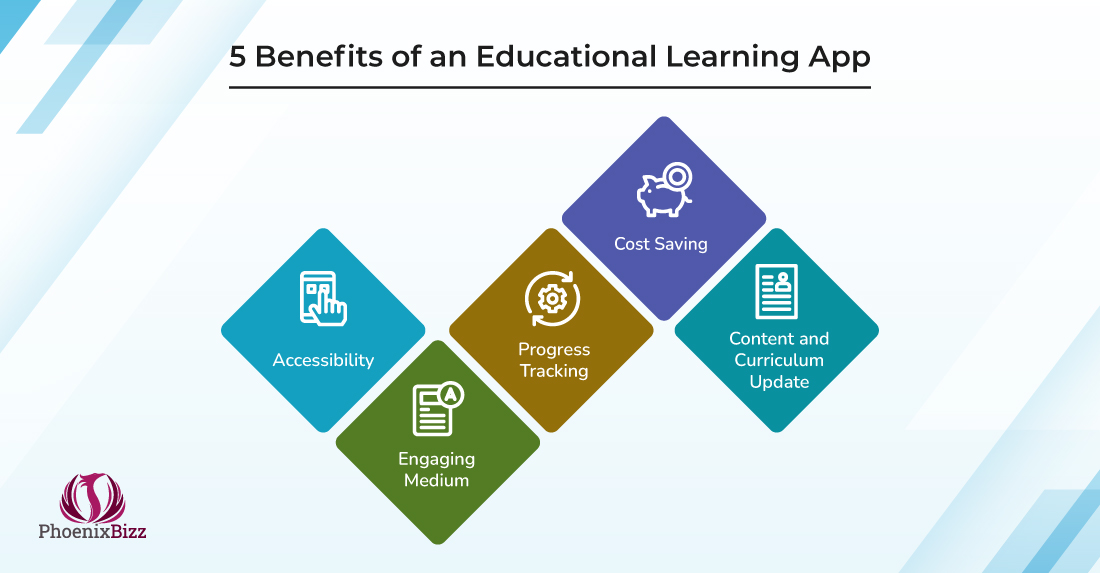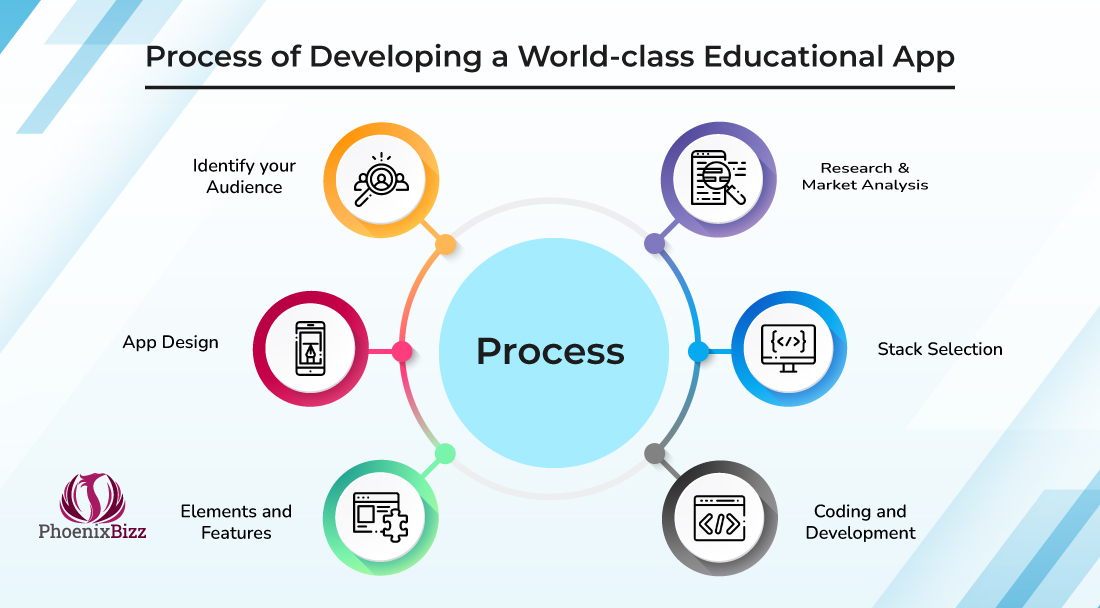August 07, 2023
By: PhoenixBizz Staff Writer
PhoenixBizz is a division of Sofvue, LLC
Printed with permission of Data Titan and Sofvue LLC
Educational app development gained expanded popularity during the Covid pandemic. The education-tech sector has experienced rapid growth since 2021 as millions of colleges and post-graduation students now prefer to learn online, and apart from academic requirements, e-learning platforms offer certifications for professionals like Agile project management, ITIL 4, etc., and students are now demanding platforms where content and learning can happen online. Educational apps have revolutionized the education sector by removing distance barriers, and as a result, students can take up their favorite courses from anywhere in the country.
If you are a learning or education service provider, then this is the right time to consider investing in an e-learning mobile app. In this article, we have compiled the necessary information needed to create an educational mobile app, along with the associated development process.
What is an educational mobile app used for?
An educational mobile app facilitates learning through a remote, digital medium. Students can enroll in courses online and learn through their smartphones, laptops, or tablets, with learning platforms catering to a wide range of audiences, from college students to working professionals.
For consumers of learning apps, e-learning platforms are convenient, fast and eliminate the need for traditional “classroom” settings, and whether its learning a new language, becoming an auto mechanic, or becoming a scientist, educational mobile apps fill each of these sectors, to name a few. Many schools and universities are already in the marketplace and have launched personalized educational apps developed for a wider reach.
Must Read: App Development Cost In 2024: The Definitive Guide
Features of an educational app
While you may notice distinct types of e-learning apps, certain common features are necessary if you want to make an impact in your market segment.

#1 Educational Content
Educational apps provide a vast selection of learning content to accommodate a variety of subjects and ability levels. Text-based lessons, video lectures, interactive simulations, and multimedia presentations can all be included in the content library, and many mobile apps offer their own structured courses created by educators and subject matter experts, or curated content from a variety of sources.
#2 Video Conferencing
A video conferencing feature is crucial in learning apps. There should be a common platform with high-quality video and audio support for teachers and students alike.
#3 Offline Access
Offline access is key for students with limited internet connectivity or when studying on the go. Educational apps often provide options to download content, enabling users to continue learning even without an active internet connection.
#4 Personalized User Panels
Every user should have their profile section where the details of their learning progress, completed courses, are visible. This panel should be personalized for all users. Students should be able to easily find their courses while instructors and teachers should be able to find their class details here.
#5 Parental Controls
For K-12 educational platforms, the apps should be designed with parental control features. Parents or guardians can monitor their child's activities, set time limits, access limits, and manage content resources to ensure a safe and enjoyable educational experience.
What are the benefits of an educational learning app?
The benefits of an e-learning mobile app are long, from accessibility and personalized learning pace, real-time teacher/student feedback, interactivity, cost-effectiveness, and multimedia integrations. An e-learning platform can fulfill these benefits and many more. Some of these include:

1. Accessibility
E-learning apps are easily available to people living in different cities or states. All you need is a device and a stable internet connection to leverage this mode of education. Educational apps also cater to students with disabilities by incorporating features like text-to-speech, speech recognition, and adaptive interfaces.
2. Engaging Medium
Using digital media for interactive learning has proven to be highly beneficial. Students, especially the younger ones, tend to engage more with content specifically designed to invoke active participation. Pre-school kids love to learn through multimedia and gamification.
3. Progress Tracking
educational apps with progress tracking features help students monitor their learning journey. At the same time, educators and parents can keep track of students' performance, identify learning patterns, and intervene when necessary. All certificates, scores, and grade cards are safely stored in the app for easy and quick access.
4. Cost Saving
Traditional education system involves investment. You must spend money printing textbooks, curriculums, commuting expenses, etc. But developing a mobile app will help you save costs. The major investment will be in the development service and app maintenance.
5. Content and Curriculum Update
Educational mobile apps allow you to seamlessly update the curriculum and syllabus. You can update and expand courses and lessons on the app in a hassle-free manner. All you need to do is add the content to the database, which is comparatively easier when you try to do the same using traditional content delivery methods.
How to develop a world-class educational app?
The software development process remains the same for all types of apps, but slight changes can be observed while developing apps for varying industries. Creating a responsive mobile app is always the top priority of any programmer. Following a strategized approach for the development method helps in delivering unique and state-of-the-art solutions.

Step 1: Identify your Audience
As the owner of your mobile app platform, you must first have a clear understanding of your target audience before beginning the process. Consider the type of mobile app you are developing, target audience, and educational objectives of your app. Building pertinent features and content for the app becomes easier when you know your audience's requirements.
Step 2: Research & Market Analysis
Conduct extensive market research to identify existing educational apps and understand their strengths and weaknesses. Analyze user feedback, reviews, and ratings to gain insights into user expectations and preferences. This research will help you identify gaps in the market and provide valuable insights for your app's development.
Step 3: App Design
Your app should have an attractive and user-friendly design to entice users. Focus on creating a simple and intuitive design that allows users to navigate effortlessly. Implement clear calls-to-action, accessible menu, a clean layout, and easily identifiable icons and buttons.
Step 4: Stack Selection
Selecting the right technology stack is crucial for the performance and scalability of your app. Consider factors such as the operating systems you want to support (iOS, Android), programming languages, and development frameworks.
Step 5: Elements and Features
The app should offer engaging learning methods to make courses more interesting for the students. Finalize and integrate interactive elements like quizzes, multimedia content, and gamification features such as badges, rewards, and leader boards to keep them engaged and interested. Gamification is another component that motivates users to stay committed to their learning journey.
Step 6: Coding and Development
Write a high-markup code to begin the development stage. Ensure that the final code is bug-free, so the app runs smoothly.
Step 7: Testing
Testing the app at various stages is necessary but running tests after the development is complete is still a needed requirement. Test the app on various devices and platforms to confirm its performance on multiple devices.
Step 8: Updates and Maintenance
A software development company's work does not end with the launch. Your software development partner must be available for ongoing maintenance and programming support.
Also Read: What Is The Real Cost To Build A Mobile App
Frequent questions asked about educational app development
1. How much do you charge for educational software development?
The development journey is varied, and it requires teams to dedicate the needed hours to develop a solution perfectly. We offer simple pricing plans, but the exact cost depends on requirements, project complexity, features, customization, platform (iOS, Android, or both), etc. You can schedule a call with us to discuss your project further.
2. How do you manage the huge amount of data used in e-learning apps?
Our team at PhoenixBizz efficiently manages large e-learning mobile app data through scalable infrastructure, cloud-based solutions, data compression, and content delivery networks. Our robust database management, caching, and security measures ensure optimal performance, data privacy, and a seamless learning experience for users.
3. Can you customize the app as per my requirements?
We specialize in creating customized apps tailored to meet your requirements. We understand that each client has unique needs and preferences. Our team of developers, designers and programmers will work closely with you to understand your vision and transform it into a fully personalized app that aligns perfectly with your goals and brand identity. From features and functionalities to design elements, we ensure that the app reflects your vision and delivers an utterly unique and exceptional user experience. Your satisfaction is our priority, and we are committed to exceeding your expectations in every aspect of app customization.
4. How much time do you take to deliver an educational mobile app?
We have a dedicated team of engineers, coders, developers, researchers, designers, and managers who efficiently manage and complete the project on time using the Agile framework. A typical e-learning mobile app usually takes 3-6 months to complete but the exact period depends on your requirements and project complexity.
Education tiered businesses typically require a mobile app that not only resonates with their business but also reflects their vision. If you wish to launch a user-friendly educational app and want help with the same, the PhoenixBizz team is happy to assist you.
With trained staff and experienced developers, we have emerged as one of the leading mobile app development companies in the region. Our team has designed and developed $23MM in solutions for companies across multiple industries and we have 85,000+ wireframes to backup this statement.
We added mobile app developed services to our services stake in 2010, and since then we have served hundreds of clients. We leverage the latest technologies to create unique UI/UX designs and codebase for your software. Our senior architect, along with our engineers, programmers, designers, and analysts tirelessly work to deliver positive results. Feel free to contact us, and our team will help you with our world-class services. For more information, please contact us at 623-845-2747.
RE: 11604









